
OR
Opinion
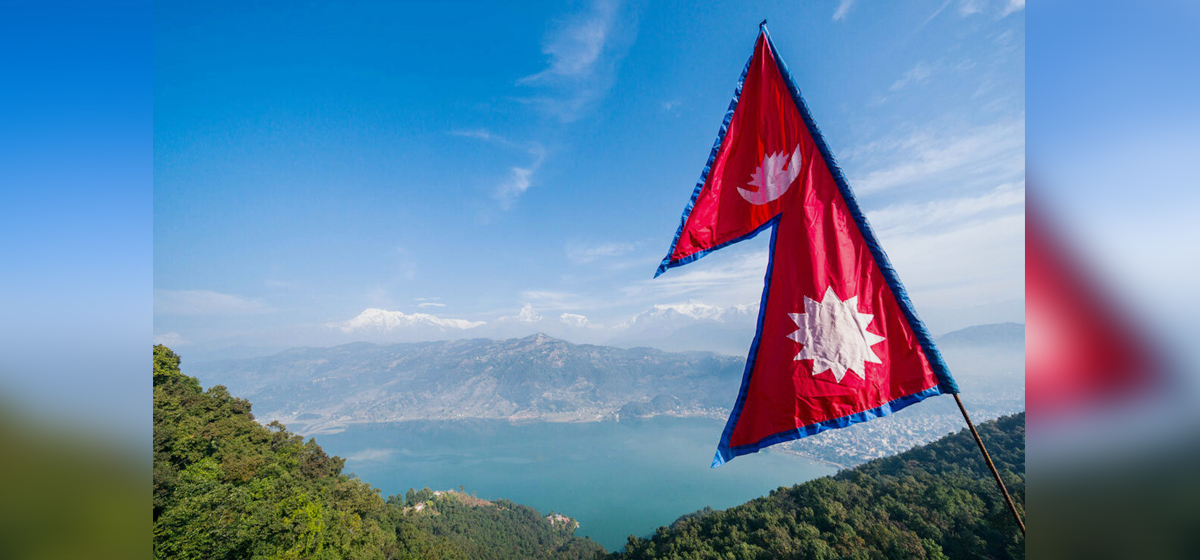
Nepal is losing its momentum in meeting the expectations of its people as a flourishing democratic nation with prosperity and advancement. In the 15 years following the announcement of Nepal as a federal democratic republic in 2008, and particularly after the promulgation of the constitution under a new political setup, the country is descending into chaos, exhibiting all the characteristics of a failed or failing state. A prime example of this is the prevalence of kleptocracy, cronyism, and impunity in every aspect of the state's operations, which are hallmarks of a failed state.
Although Nepal is projected to transition from a poor nation to a developing nation by 2026, the socio-economic indicators, in reality, paint a different picture. The living conditions of the people are becoming increasingly miserable. Pervasive corruption, along with the existence of kleptocracy and impunity, stands as one of the primary features of a failing state. In this situation, the newly established democracy in Nepal is in grave danger, with all signs pointing to its failure and a reversal of progress.
According to a Freedom House survey, Nepal scored poorly, receiving 57 out of 100 in 2022, labeling it as a partly free country with a hybrid democracy. The Democracy Index ranks Nepal at 101, with a score of 4.49, which reflects the state of democracy in the country. Additionally, Nepal stands at 110 out of 167 countries in the overall prosperity index. In the current global context, liberal democracy is under attack from various quarters, particularly from political or religious fundamentalists and extreme right or left demagogues worldwide who seek to undermine it gradually or subtly. Nepal is no exception to these challenges. Expensive electoral systems often come under scrutiny for fostering immoral activities driven by leaders' desires, greed, and lust for power. When money and muscle rule the roost, the essence of democracy deteriorates, bit by bit.
The development of corruption as a cultural norm, coupled with impunity and protection from influential leaders, enriches the ruling elite at the expense of the democratic system. This trajectory pushes the country toward possessing all the essential ingredients and characteristics of a failed state. Competitive democracy can incentivize the ruling party to exploit their power for personal gains and looting public resources. The system facilitates the enrichment of ruling elites through clientelism, perpetuating a cycle of corruption.The downfall of democracy lies in its inherent weaknesses, often attributed to the electoral system and its consequences. Nepal's situation aligns with theoretical and empirical evidence. The country now stands at the crossroads, teetering on the verge of becoming a soft state that fails to enforce laws, as ruling elites protect their cronies engaged in unethical or immoral activities against the state. Leaders, who are meant to embody the popular will, trample upon processes, rules, and institutions of representative government.
A 2019 Pew Research Centre survey across 34 countries found that a median of 52 percent of respondents expressed dissatisfaction with democracy in their own country. A more recent study by Foa et al. (2020) for the Centre for the Future of Democracy at Cambridge University revealed that an average of 58 percent of citizens worldwide are dissatisfied with democracy (compared to 39 percent in 2005), with young people being particularly disillusioned. The twenty-first century has witnessed unexpected waves of political upheaval triggered by the global financial crisis in the first decade, followed by environmental degradation, natural disasters, and health pandemics. These events have destabilized governance systems globally, irrespective of geographical or political systems in place. They have exerted immense stress on human activities, threatening survival and fueling anxiety and anger due to the fear of losing employment and business opportunities. As a result, frustrated youth face socio-cultural and economic insecurities, exacerbated by populist demagogues on one hand and a kleptocratic governance system with impunity for ruling elites on the other. This fosters the sentiment that "nothing happens in this country," leading to the disarray of not only democracy itself but also the future of the youth. Consequently, many youths are compelled to seek opportunities abroad through outward migration.
The pervasive corruption in Nepal is a result of political protectionism. At one point in Nepal's history, the CIAA, a constitutional body established to combat corruption, became an instrument of corruption instead of a defense against it. Corruption has infiltrated every level of governance and state institutions, becoming an accepted national norm. Corruption, in any form, such as bribery, embezzlement, fraud, favoritism, nepotism, protectionism, or extortion, has become omnipresent in Nepal, particularly in policy corruption. Nepal has consistently scored poorly in the Corruption Perception Index. In 2004, Nepal ranked 90th, but its position deteriorated to 154th out of 175 countries in 2011/12. While there has been some improvement, Nepal still ranks 110th out of 180 countries.
Recent corruption scandals have shattered the public's trust and confidence in their elected leaders. These scandals involve high-ranking officials, including former ministers, their advisors, the secretary for home affairs, and their family members. One case involves a fraud scandal related to the Bhutanese refugees, which resulted in Nepali citizens being falsely categorized as non-Nepali and recommended for third-country settlement. Such cases undermine national pride and dignity. Corruption cases that have come to light include the wide-body aircraft purchase deal, vaccine procurement during the Covid-19 pandemic favoring the Omni group of companies, leasing government property to a particular Yeti business group, the Taragaun Regency Hotel scam, the Tax Settlement Commission's biggest corruption case with 33 billion in fines, the Lalita Niwas land scam, the Budhigandaki Hydropower project construction contract awarded without bidding, a 700 million bribe in the security printing press case purchase scandal, the CCTV case, the 33 kg gold case, and the 108 kg Jalahari (a gold plate to cover the lower part of Lingam at Pashupati temple).
Adding insult to injury, the 2080/81 government budget allocated a substantial amount of money, commonly known as a pork barrel, to be spent at the discretion of the House of Representatives. This arrangement faced severe criticism from the public, leading to its abolition. Many believe that such arrangements are designed to help elected members recoup their campaign expenses through manipulation. Against this backdrop, Nepal's newfound democratic credentials have been diminished, and its international image has been significantly tarnished as a corrupt, inept, and weak nation.
You May Like This
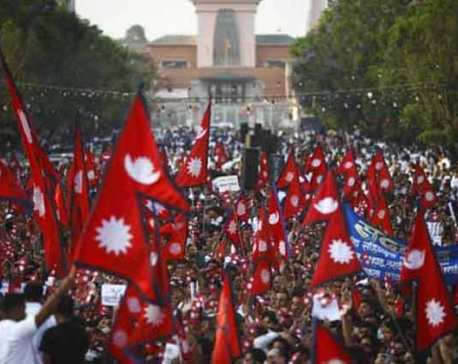
Democracy Day: Foundation of Republic in Nepal
KATHMANDU, April 24: The 13th Democracy Day is being celebrated across the country today with fanfare by organizing different programs. Read More...
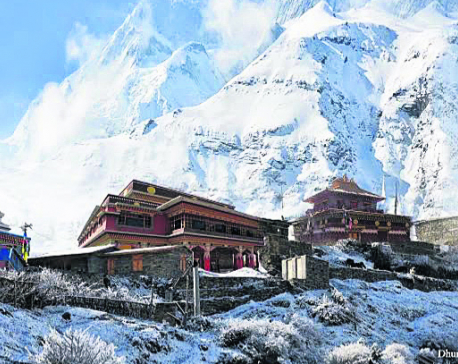
Dhurmus, Suntali to build ‘a Nepal within Nepal’
KATHMANDU, June 5: After successfully completing three settlement projects for earthquake victims and other communities, the actor couple Sitaram Kattel (Dhurmus)... Read More...
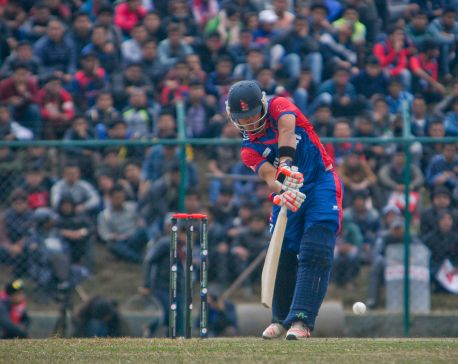
Nepal vs Kenya: Five crucial things Nepal looks for second match
KATHMANDU, March 12: Nepal is taking on Kenya on Monday in the second match of the ICC World Cricket League... Read More...




Just In
- NEA Provincial Office initiates contract termination process with six companies
- Nepal's ready-made garment exports soar to over 9 billion rupees
- Vote count update: UML candidate continues to maintain lead in Bajhang
- Govt to provide up to Rs 500,000 for building houses affected by natural calamities
- China announces implementation of free visa for Nepali citizens
- NEPSE gains 14.33 points, while daily turnover inclines to Rs 2.68 billion
- Tourists suffer after flight disruption due to adverse weather in Solukhumbu district
- Vote count update: NC maintains lead in Ilam-2













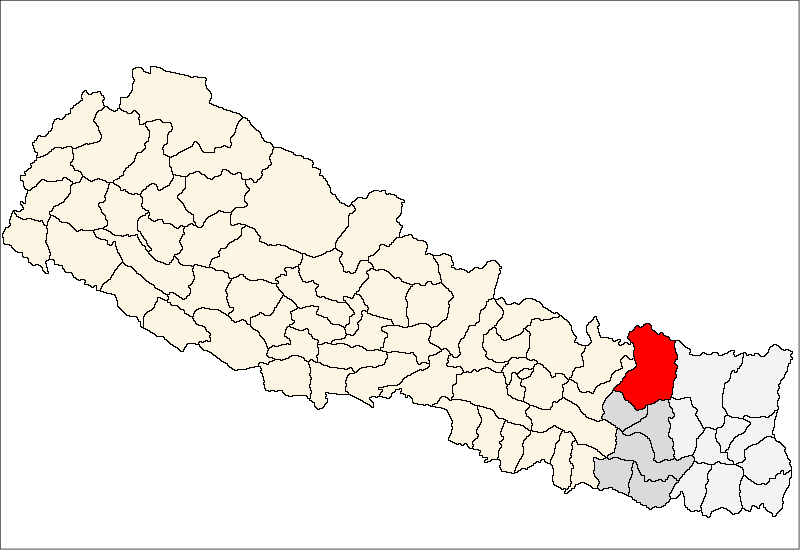
Leave A Comment